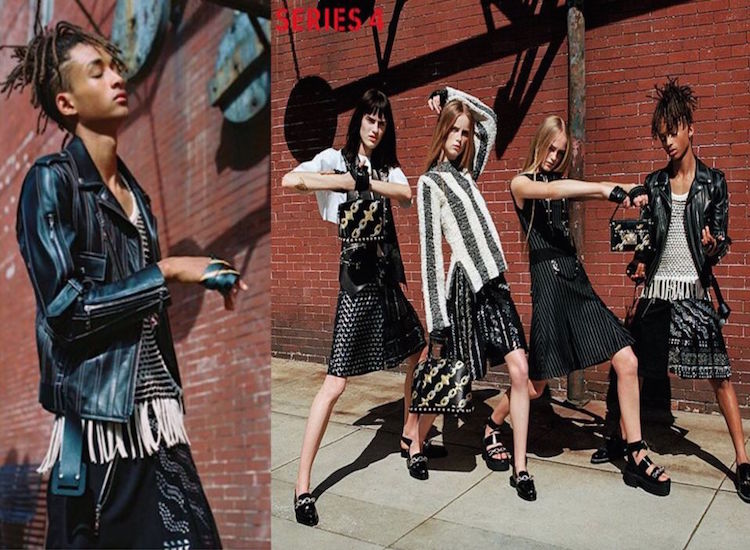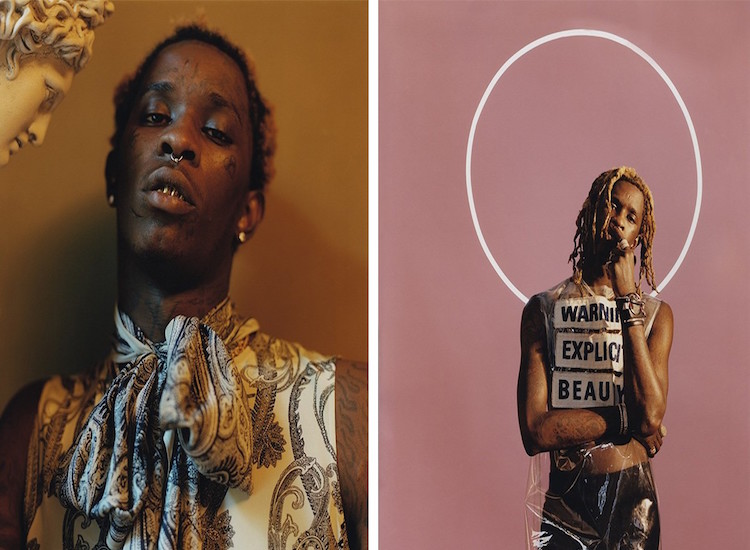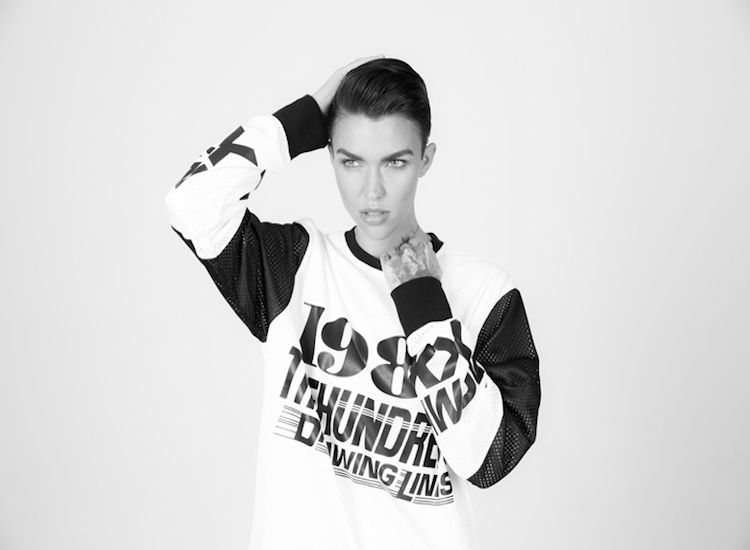Gender neutrality, androgyny, and unisex collections have been seen more prominently on runways, online and in fashion editorials. Is it here to stay or just another passing trend, spinning away on the fashion trend cycle?
The ripped ‘Boyfriend Jean’, ‘Boyfriend Tee’, Bomber Jackets and Tux Coats, have been adopted as ‘must have’ staples in every female’s wardrobe, although traditionally seen as apparel for men. Just as bright florals and pinks previously labeled as feminine are now part of male wardrobe. International fast fashion stores such as Top Shop, H&M and Zara are producing these pieces, leaving the customers to interpret the clothing however they like.
ON THE RUNWAYS
With Gucci’s plan to merge their Men’s and Woman’s Collections in 2017, it is clear to see that gender neutrality and androgyny is becoming more present in the high-end fashion industry. Just as many other fast-fashion trends are influenced by the high-end; styles and designs will ‘trickle-down’ and are replicated by the mainstream.
A real shift for gender neutrality in modern fashion occurred in 2012 when Andreja Pejic and Casey Legler were signed as A-gender models. This gave them the opportunity to take both female and male modelling jobs. These individuals were seen on international runways, as was the successful androgynous female model, Elliot Sailor, who opened for Vivienne Westwood Men’s Collection in Fall 2015.

CELEBRITY INFLUENCE
Models and fashion houses have been challenging the norms since Grace Jones’ bold square cut clothing and androgynous prime days. This inspiring artists non-conformist style caught the eyes of Karl Lagerfeld and many other influential people within the fashion industry. With no doubt, the styling of fashion editorials and celebrity influence are two contributing factors to the movement.

Photo Cred- flavorwire.com
Well recognised Movie star Will Smith’s son, Jaden, stared a role in Louis Vuitton’s Spring Summer 2016 Womenswear editorial campaign. Nicolas Ghesquiere the creative director of the fashion house stated “[Jaden] represents a generation that has assimilated the codes of true freedom, one that is free of manifestos and questions about gender. Wearing a skirt comes as naturally to him as it would to a woman who, long ago, granted herself permission to wear a man’s trench or a tuxedo”.

Photo Cred- asx.com
In an interview with GQ, Rapper Young Thug proudly stated, “The only thing I probably have in men’s is like, briefs… 90% percent of my clothes are women’s”. He was also featured on the front cover of Dazed & Confused in 2015, styled by Gucci.

Other influential artists such as Angel Haze, and Ruby Rose are all explaining through style why fashion should empower rather than discriminate or limit the expression of one’s self, both using social media as an outlet to present this to their audiences.

Photo Cred- MISSBISH
In 2015, British department store Selfridges opened ‘AGENDER’, a genderless section to their retail space. The retailer teamed up with creatives, such as: recording artists Dev Hynes and Neneh Cherry, directors Alex Turvey and Kathryn Ferguson and choreographer Ryan Heffington. On the release of Selfridges film, Ryan stated “The film is an evolving journey through a subtle push and pull between masculinity and femininity…”. Throughout the video, titled ‘He She Me’, the unique models are styled in non-traditional way’s to accompany the apparel and emphasise the concept of their ‘Gender-Free’ collection.
FASHION INDUSTRY’S MOTIFS
There are questions which arise in the discussion of Gender Neutrality in fashion: does the industry have the individuals best interest of personal self-expression at heart? Or, is this post-gender movement being incorporated for shock value to turn over a higher profit?
Yes, it may be a smart strategy to reduce production costs with less pattern designs! Or, is there a marketing psychology behind this movement? By broadening the unisex market, the clothing lines will appeal to a larger target audience and result in an increase of profits.
Looking beyond the marketing aspect, unisex brands are providing customers with the opportunity to voice their individual style, and reflect a movement through their choice of outfit. People are given the ability to challenge traditional categorisation of gender normalities in fashion.
With the rise of androgynous models, and the editorial campaigns of leading international brands, such as Gucci and Louis Vuitton, it is clear to see that gender neutrality and androgyny is becoming more present in the fashion industry. These essential influences, as well as the current merge of future Men’s and Woman’s runway collections, suggests that Gender Neutrality in fashion is here to stay and not just another passing fashion trend.






